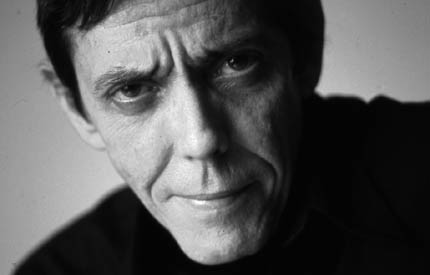11.7.4 Noel Nicola.

Noel Nicola, Cuban composer and performer, was born on October 7, 1946, in Havana. He was born into a family of musicians. His father, Isaac Nicola Romero (guitarist and pedagogue), was the founder of the Cuban Guitar School and the teacher of Leo Brouwer. His mother, Eva Reyes, was a violinist with the National Symphony Orchestra and a singer.
Between 1954 and 1956, he studied the piccolo with maestro Douane Voth and music theory with Martín Quiñones. Later (1969-1971), as part of the workshop that formed the ICAIC Sound Experimentation Group, he studied with Leo Brouwer, Juan Elósegui, Federico Smith, and Sergio Vitier.
Nicola composed his first songs when he was thirteen years old. In the 1960s, he joined and led the band Los Kendy, later known as Seis TK.
Between 1967 and 1969, he worked as a research assistant at the Institute of Ethnology and Folklore of the Cuban Academy of Sciences (Industria and San José, National Capitol, Old Havana, Havana), which was directed by the musicologist and composer Argeliers León, of whom he was a disciple. In February 1968, he performed with Pablo Milanés and Silvio Rodríguez in a recital organized by the Center for Protest Song at Casa de las Américas (3rd and G Streets, Vedado, Plaza de la Revolución, Havana).
He was a member and founder of the ICAIC Sound Experimentation Group, where he expanded his musical training through the workshops he taught.
Noel Nicola is considered one of the pioneers of the Cuban Nueva Trova movement since 1968 and was the first President of this Cuban songwriting movement (1972-1977). He is also one of its leading exponents. In 1974, he traveled to the Dominican Republic with Silvio Rodríguez, where he participated in the Siete Días con el Pueblo festival. In 1975, with Argelia Fragoso, he represented Cuba at the Sochi Political Song Festival in the Soviet Union. There, he was awarded a prize by the Union of Composers of that country.
From the early 1970s to the 1980s, he toured the Dominican Republic, Mexico, Spain, Nicaragua, and Venezuela, both solo and in concert with other Cuban musicians such as Silvio Rodríguez, Marta Campos, Santiago Feliú, and Donato Poveda.
He also toured countries such as Peru, Ecuador, Argentina, Brazil, Chile, Venezuela, Nicaragua, Dominican Republic, Mexico, Spain, France, Portugal, Belgium, Italy, Sweden, Soviet Union, Canada, United States, Germany, Sweden and Norway.
His songs, sometimes in conga or rumba rhythms, are dominated by biting satire against bureaucracy, social conventions, and hypocrisy in relationships between the sexes. This approach to song is present in almost all of his work, but also includes his meditations on old age and love.
His work includes songs, film scores, and he also composed music for plays and documentaries. He set poems by José Martí and César Vallejo to music. His musical catalog includes more than 350 titles. He has released seven LPs and one CD for the AREITO label of the EGREM (Spanish Association of Musicians of the Spanish Association of Musicians).
Among his most distinguished songs are: Por la vida juntos, Para una imaginaria María del Carmen, Comienzo el día, Son oscuro and Es más, te perdono (or Te perdono, as it is known worldwide), the latter recently recorded in a “salsa” version by Isaac Delgado.
His works have been performed by great musicians of different nationalities, including Carlos Díaz, Daniel Viglietti, Elena Burke, Guadalupe Pineda, Isaac Delgado, Jesús del Valle, Joan Manuel Serrat, Manuel Argudín, Miriam Ramos, among others.
Nicola passed away at the age of 58, in 2005.
Noel Nicola received the following awards for his hard work as a Cuban musician: 2004, Félix Varela Order. 2002, Alejo Carpentier Medal.








